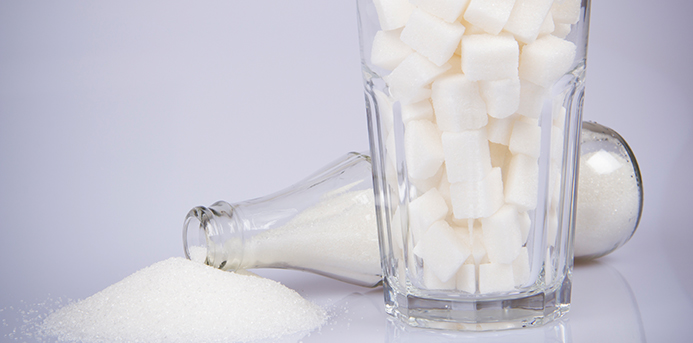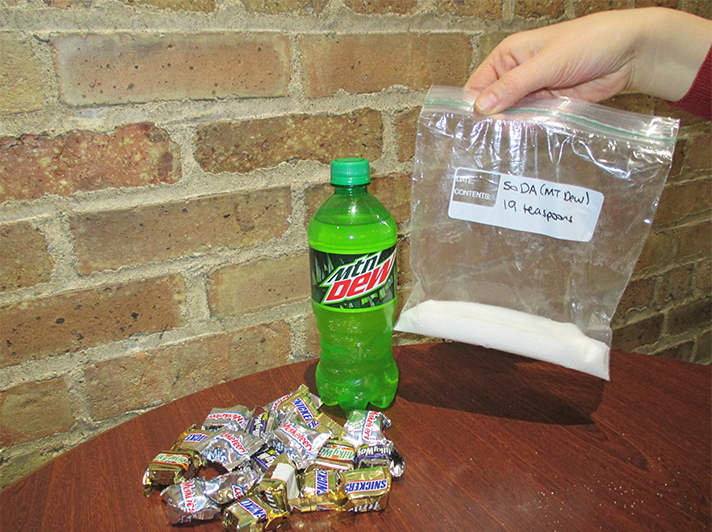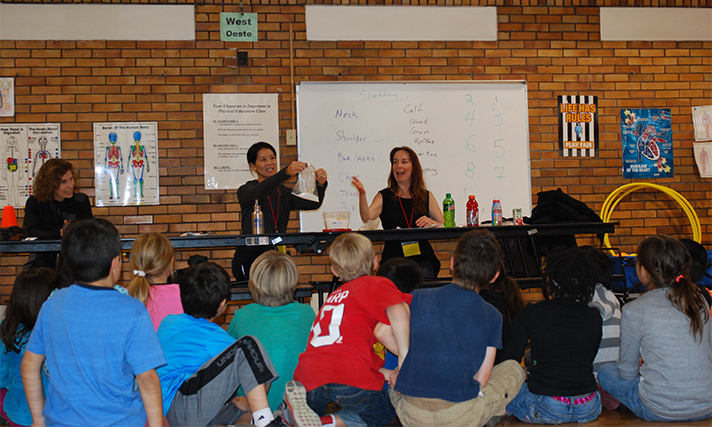Evidence linking our love of sugar to the obesity epidemic is growing, while our obsession with low-fat food is proving futile. We are a nation raised on sugar, starting with infant formula and progressing to juice, chocolate milk, Gatorade and soda. While sugar-sweetened beverages are only part of the problem, they account for a large portion of sugar consumption. The city of Berkeley, Calif. even passed a soda tax to discourage the public from drinking the sugary beverages.
In the recently released documentary, “Fed Up,” experts present compelling evidence that fat is not the problem—sugar is. Dr. Robert Lustig, pediatric endocrinologist at the University of California, San Francisco, points out “fructose—found in table sugar and high-fructose corn syrup—is toxic in large quantities because it is metabolized in the liver in the same way as alcohol, which drives fat storage and makes the brain think it is hungry.
As we have emphasized limiting calories and fat and increasing exercise, obesity and related diseases have continued to rise in the U.S. Processed “low-fat” foods have made things worse. “Fat was replaced by sugar in so much of our food in order to make it palatable,” says Dr. Lustig. A scary factoid: Nearly 80 percent of processed foods contain added sugar.
The American Heart Association recommends limiting daily added sugar to 6 teaspoons (24 grams) for women, 9 teaspoons (36 grams) for men and 4 teaspoons (16 grams) for kids. These limits are placed on added sugars, not the sugars found naturally in foods like fruit and milk.
As the case continues to mount against sugar, health advocates are going after the low-hanging fruit: sugar-sweetened beverages (SSB), such as soda. Influenced by Dr. Lustig, local pediatrician Dr. Lynn Chehab has begun a grassroots effort in Evanston to educate kids about the dangers of SSBs.
“I was a resident in Pediatrics at UCSF, where Dr. Lustig was an attending,” Dr. Chehab says. “During my Fellowship at Columbia University, I was fortunate to hear lectures by Dr. Rudolph Leibel and work with Dr. Michael Rosenbaum. All three were pioneers in understanding the links between sugar and obesity.”
Dr. Chehab was also influenced by Kathy Dolgin, the life coach featured in “Fed Up.” A former drug addict, Dolgin points to the research comparing sugar and drug addictions. Kathy founded the Energy UP! program to empower teen girls to fight obesity.
Dr. Chehab also works with students at the Evanston Township High School Health Center. Her “6 to Success” is helping to guide students toward healthy lifestyles and to reduce obesity in the ETHS population. Dr. Chehab points out that in general, “10 percent of the teen diet comes from sugary beverages.”
Her work at ETHS has encouraged her to reach out to younger kids. “I wanted to do a project to address pediatric obesity and much of the literature agrees that eliminating sugar-sweetened beverages is the place to start,” she says. “I decided to start at [Evanston’s] Willard School, as I am a co-chair of the Wellness Committee, along with Arleen Temer-Witcoff, RD.”
The two created the “Sugar Show” (as featured on WGN). ”Students are taught that there is a safe daily limit of added sugars. We hold up a baggie showing 4 teaspoons of sugar. We show different drinks and count out the teaspoons of sugar aloud. Students see that a single serving of their favorite drinks far exceeds the recommended limit. There are several ‘aha’ moments!”
Kids were fascinated to learn that:
- An apple juice box has 5 1/2 teaspoons (22 grams) of sugar
- Chocolate milk has 6 teaspoons (24 grams) of sugar.
- A bottle of red Gatorade has 8 teaspoons (32 grams) of sugar.
- A bottle of Mountain Dew packs a whopping 19 teaspoons (77 grams) of sugar.
The goals of the program are to :
- Educate students about the dangers of excess sugar and how much sugar is hidden in drinks
- Create a school culture around SSBs that is similar to cigarette smoking—something that is viewed as bad for your health and a poor personal choice
- Decrease the amount of student SSB consumption and increase the amount of water consumption
In support of the program, NorthShore University HealthSystem donated two water bottle-filling fountains at Willard. The program’s early success is evident as parents are reporting their kids are requesting water in their lunches.
To learn more about the growing evidence linking sugar consumption to obesity and a range of diseases:
- Check out SugarScience.org
- Use the tools on rethinkyourdrinknow.com
- Watch Fed Up, found on iTunes and On Demand
- Read “Fat Chance” by Dr. Robert Lustig
- Read “Year Of No Sugar” by Eve O. Schaub
- Support food labeling that breaks out added sugars
Dr. Chehab urges, “Read labels. Be mindful of added sugars. Think of sweets as a treat. Have a sugar budget. Be on the lookout for hidden sugar in things like ketchup, salad dressing, yogurt, bread and pretzels. Labels do not distinguish between added and naturally occurring sugars. Eat real food that does not come out of a bottle, box, or bag.” Wise counsel, indeed.



